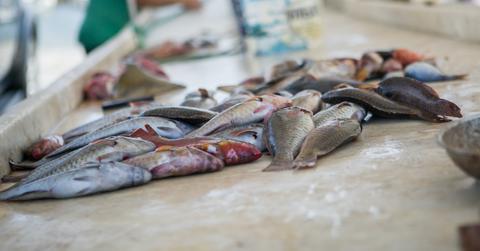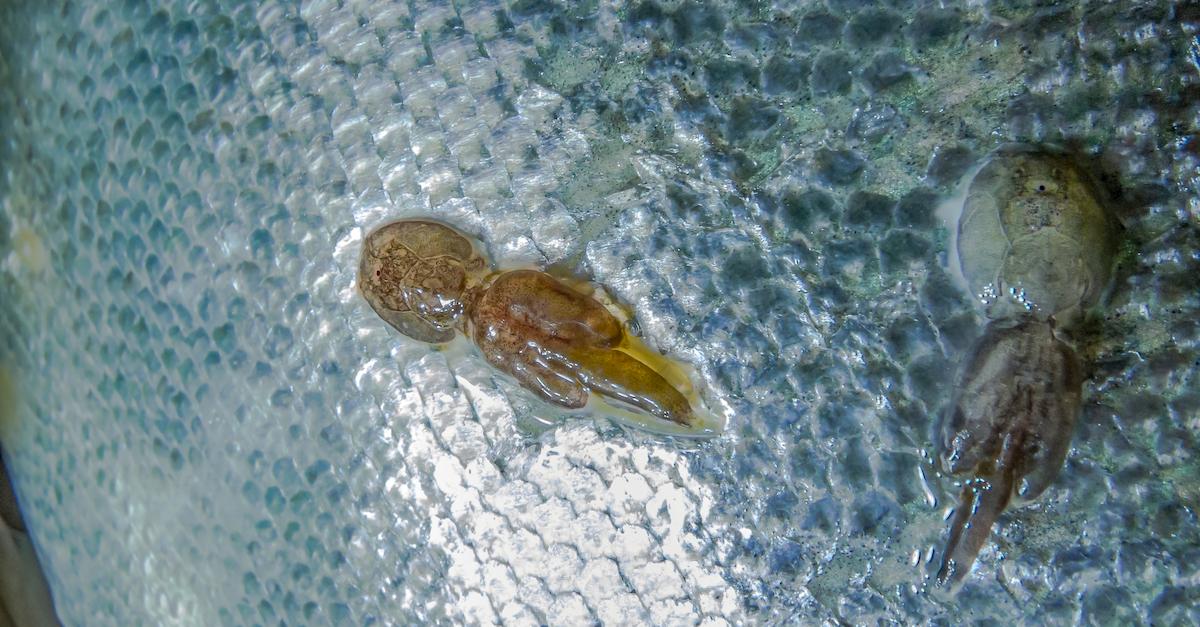Fish Farms in the U.K. Are Plagued With Fish Lice — Prepare to Be Grossed Out
Published Nov. 25 2020, 11:26 a.m. ET

We're all painfully aware of how irresponsible the fishing industry can truly be — overfishing has caused certain marine populations to plummet, while non-target marine life is often inadvertently caught and killed as bycatch. Meanwhile, a recent discovery showed that several Scottish fish farms were selling fish to U.K. grocery stores that had been plagued by "sea lice." But what does that mean?
“We’re led to believe that aquaculture is the sustainable solution to overfishing, but its rapid intensification has brought with it the same problems we have with factory farms on land," said Lex Rigby, head of an undercover investigation, as per Totally Vegan Buzz.
“The putrid conditions in which farmed fish are reared create a breeding ground for disease that not only causes serious animal welfare issues but also delivers widespread habitat destruction, water pollution, and the development of life-threatening drug-resistant superbugs,” Rigby added.

Here's the nauseating truth behind aquaculture sea lice outbreaks:
As previously mentioned, numerous Scottish fish farms that had previously supplied U.K. grocery stores with salmon have been recently plagued with sea lice, as per Plant Based News. British animal rights group Viva! investigated these fish farms, and reported overcrowded sea pens, which provide ample environments for sea lice to breed and spread. Sea lice are pests that eat fish flesh, and although adult salmon can handle them, sea louse cause distress, scale loss, infections, and death.
Rigby says aquaculture is often posed as an eco-friendlier alternative to farming; however, diseases and parasites like these are quite similar to issues that affect on-land livestock. A majority of Scottish salmon farms apparently qualify for the "RSPCA Assured" label, but others don't, and instead, opt for what many view as "less official" certifications such as Best Aquaculture Practices, Marin Trust, GGN Certified Aquaculture, and Global G.A.P., as per Totally Vegan Buzz.
It's pretty unlikely that humans will find sea louse in affected salmon, as all fish is supposedly washed several times before they're sold, according to Science Norway. However, finding them in a filet isn't entirely impossible. Unless sea louse has caused the fish's skin to rot, they are supposedly harmless to eat. That said, it's incredibly disgusting, and definitely lowers the quality of affected fish.
What is the solution to sea lice?
To combat sea lice, the fish farming industry generally breeds lumpfish, which are meant to clean out sea lice; however, that is generally not a successful solution in the event of an outbreak, according to Totally Vegan Buzz. Chemical washes and mechanical treatments, such as hydrolicers and thermolicers, are alternative techniques that many compare to "brutal washing machines" and were classified as carcinogens in 2016. Although they are still allowed, they aren't recommended, safe, or humane.
Smaller farms that give salmon more room to live and breed are definitely more humane, as well as small-scale fishing, which prevents fish from being affected by sea lice altogether. But if you really want to go for the best and most sustainable fishing option, avoid eating fish altogether, and simply opt for fish-free seafood.